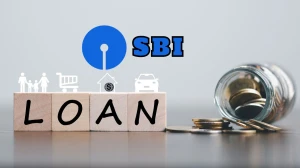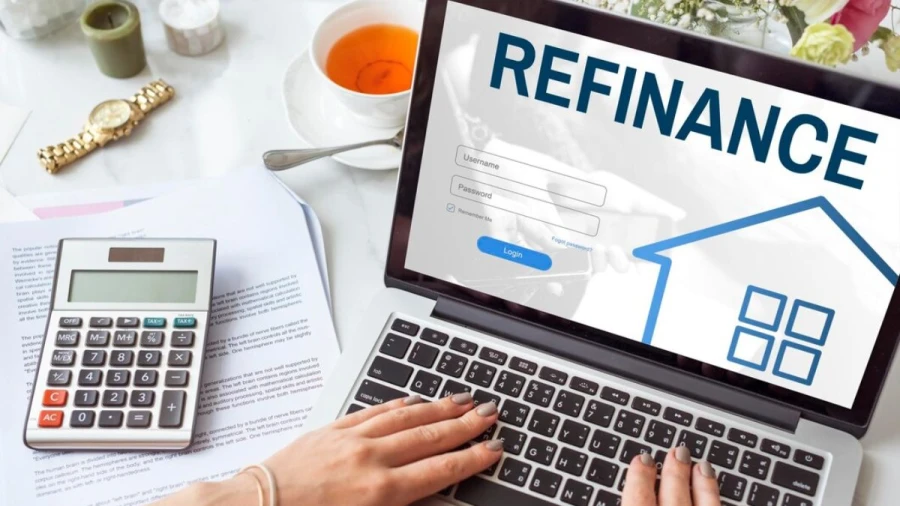
When to Refinance a Mortgage? What Documents Do You Need to Refinance Your Mortgage?
Refinancing a mortgage can be a wise financial decision if you can obtain a lower interest rate, shorten the term of your mortgage, or tap into home equity to raise funds. However, refinancing can also cost you money.
Published Aug 14, 2023 | Updated Jan 11, 2024 | 📖 4 min read
When to Refinance a Mortgage?
Refinancing a mortgage means paying off an existing loan and replacing it with a new one. Homeowners refinance for various reasons, such as obtaining a lower interest rate, shortening the term of their mortgage, converting from an adjustable-rate mortgage (ARM) to a fixed-rate mortgage, tapping into home equity to raise funds, or consolidating debt.
Refinancing can save you money, but it can also cost you money. Refinancing can cost between 3% and 6% of a loan’s principal and requires an appraisal, title search, and application fees. Therefore, it’s important to determine whether refinancing is a wise financial decision.
One of the best reasons to refinance is to obtain a lower interest rate. Historically, the rule of thumb is that refinancing is a good idea if you can reduce your interest rate by at least 2%. However, many lenders say 1% savings is enough of an incentive to refinance. When interest rates drop, consider refinancing to shorten the term of your mortgage and pay significantly less in interest payments.
Switching to a fixed-rate mortgage—or to an adjustable-rate one—can make sense depending on the rates and how long you plan to remain in your current home. Tapping equity or consolidating debt are other reasons to refinance—but beware, doing so can sometimes worsen debt problems.
What Documents Do You Need to Refinance Your Mortgage?
It’s a good idea to compare mortgage refinance rates from multiple lenders. With Credible, you can see personalized rates in minutes. Keep in mind that refinancing can cost between 3% and 6% of a loan’s principal and requires an appraisal, title search, and application fees.
To refinance your mortgage, you will need to provide the following documents.
Proof of Income
- Lenders will examine your monthly income to see if you generate enough money to pay off your new home loan and any previous obligations, as well as cover your living expenses.
Insurance Information
- The insurance records will reveal who owns the house legally and whether you’ve kept it insured.
Credit Verification
- Lenders will check your credit score and credit history to determine your creditworthiness.
Statement of Debt
- You will need to provide a statement of your current debts, including credit card balances, car loans, and other outstanding loans.
Statement of Assets
- You will need to provide a statement of your current assets, including bank accounts, investments, and other assets.
Who Offers a No-Closing-Cost Refinance Mortgage?
A no-closing-cost refinance is a refinancing option where you don’t have to pay closing costs when you get a new loan. However, it’s important to note that refinancing can cost between 3% and 6% of a loan’s principal and requires an appraisal, title search, and application fees. Therefore, it’s important to determine whether refinancing is a wise financial decision. Several lenders offer no-closing-cost refinance mortgages. Here are some of them:
Rocket Mortgage
- Offers a no-closing-cost refinance option that allows you to refinance without paying any upfront fees.
Zillow
- Offers a no-closing-cost mortgage refinance option where you don’t pay the upfront mortgage refinance fees in exchange for a higher rate or a higher loan balance.
Chase
- Offers a no-closing-cost refinance option that helps cover closing costs. It’s a good idea to compare mortgage refinance rates from multiple lenders. With Credible, you can see personalized rates in minutes.
What are the Pros and Cons of Refinance a Mortgage?
Refinancing a mortgage can be a wise financial decision if you can obtain a lower interest rate, shorten the term of your mortgage, or tap into home equity to raise funds. However, refinancing can also cost you money, so it’s important to weigh the pros and cons before making a decision.
Pros of Refinance a Mortgage
- Refinancing can help you obtain a lower interest rate, which can save you money over the life of the loan.
- Refinancing can help you shorten the term of your mortgage, which can help you pay off your loan faster and save money on interest payments.
- Refinancing can help you convert from an adjustable-rate mortgage (ARM) to a fixed-rate mortgage, which can provide more stability and predictability in your monthly payments 1.
- Refinancing can help you tap into your home equity to raise funds for home improvements, debt consolidation, or other financial needs.
Cons of Refinance a Mortgage
- Refinancing can cost between 3% and 6% of a loan’s principal and requires an appraisal, title search, and application fees.
- Refinancing can extend the term of your mortgage, which can increase the total amount of interest you pay over the life of the loan.
- Refinancing can result in a higher interest rate, which can increase the total amount of interest you pay over the life of the loan.
- Refinancing to tap into home equity or consolidate debt can sometimes worsen debt problems.
When to Refinance a Mortgage - FAQs
1. When should I consider refinancing my mortgage?
Refinancing is beneficial when seeking a lower interest rate or aiming to shorten the mortgage term for increased savings.
2. How can a lower interest rate benefit me?
Lower interest rates lead to substantial savings, equity growth, and reduced monthly payments, promoting financial well-being.
3. What should I assess before refinancing?
Evaluate overall savings, associated costs (3% to 6% of loan principal), and long-term plans to make an informed decision.
4. Is tapping into equity a good reason to refinance?
Refinancing solely for equity access or debt consolidation can lead to extended debt and extra interest payments, requiring careful consideration.
5. When is the right timing for refinancing?
Optimal timing involves reducing monthly payments through lower rates or extended terms, while factoring in closing costs and benefits.




